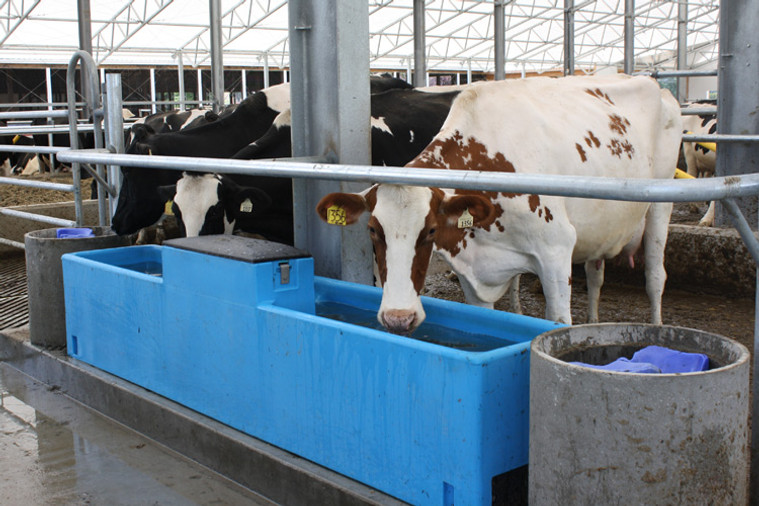How To Keep Troughs And Cattle Watering Systems From Freezing
Dec 16, 2021
In many places, winter brings snow and freezing weather. While livestock are hardy, it's important to take proper winter precautions. This includes winterizing your livestock watering systems.
We’ll share several tips for winterizing your waterers to keep them from freezing.
Insulate Your Tanks And Waterers
One of the simplest ways to prevent livestock water from freezing is insulation.
If your watering system relies on a tank, be sure one of the first things you do is insulate it. There are several ways to do this:
First, store the tank in a well-insulated structure, like a shed. However, if this is infeasible, cover the exterior of the tank itself in a layer of insulation. Many materials will do the trick, like reflective foam or bubble insulation. The goal is simply to prevent as much heat as possible from escaping.
Less traditional methods for insulating livestock water tanks include:
●Painting the tank black to absorb additional heat from the sun
●Burying the tank or mound dirt around it
The right insulation option will depend on factors such as the terrain, general climate, and availability of materials. Carefully consider all options before making a decision; and remember: insulation is a good first step, but you may need to do more to prevent freezing.
Position Water Troughs Close Together
Positioning cattle water troughs close together can create concentrated areas of heat when livestock gather together to drink. In other words, by grouping troughs close together, you can create “heat islands” that help prevent water from freezing and can also help thaw it in the event it does freeze.
Supply Extra Heat To Your Watering Systems
Sometimes repositioning water troughs and insulating tanks is not enough. In these cases, you need to supply additional heat to your livestock water systems. There are several heat solutions - two of the most common are electric water de-icers and heated buckets.
Electric Watering System De-icers
De-icers can be used at the base of the waterer or submerged in the water, either in the tank itself or in other watering systems, like troughs.
When using a de-icer, it’s important to carefully follow all directions from the manufacturer and only use them as intended.
While electric water tank heaters are the most common, propane powered heaters are also available if access to electricity is limited.
Heated Water Buckets
When providing water for fewer animals, heated water buckets are often a better solution. However, heated buckets do lack mobility: they must be tightly secured so that cattle are unable to pull them away from their source of electricity.
Keep The Water Circulating
Moving water freezes slower than standing water. This can be used to your advantage. Water circulators can be used for water troughs and larger watering buckets. Many models of water circulators are battery powered, making them highly mobile and versatile.
Automatic Cattle Waterers
Automatic livestock waterers feature a bowl that automatically fills with water from a pressurized line. The automatic filling feature can help prevent water from freezing, particularly if cattle are regularly drinking from the bowl.
Many models of automatic waterers also come with insulated bases and with optional electric heating, further improving their ability to withstand colder temperatures.
For larger dairy or cattle farms, automatic waterers may be the most straightforward option. Models differ in capacities and the optimal number of cattle. Be sure to find the option that is best for the size of your operation.
Shop For Livestock Watering Solutions From Farmer Boy
Whether you’re preparing your waterers and tanks for winter or need to replace an old watering system before the summer — Farmer Boy has everything you need to keep your livestock hydrated.
Shop our full inventory of livestock watering products and order online today. If you need help finding the right solution or want to place a large custom order for a new barn build, give our sales team a call at 1-800-845-3374 for assistance!


